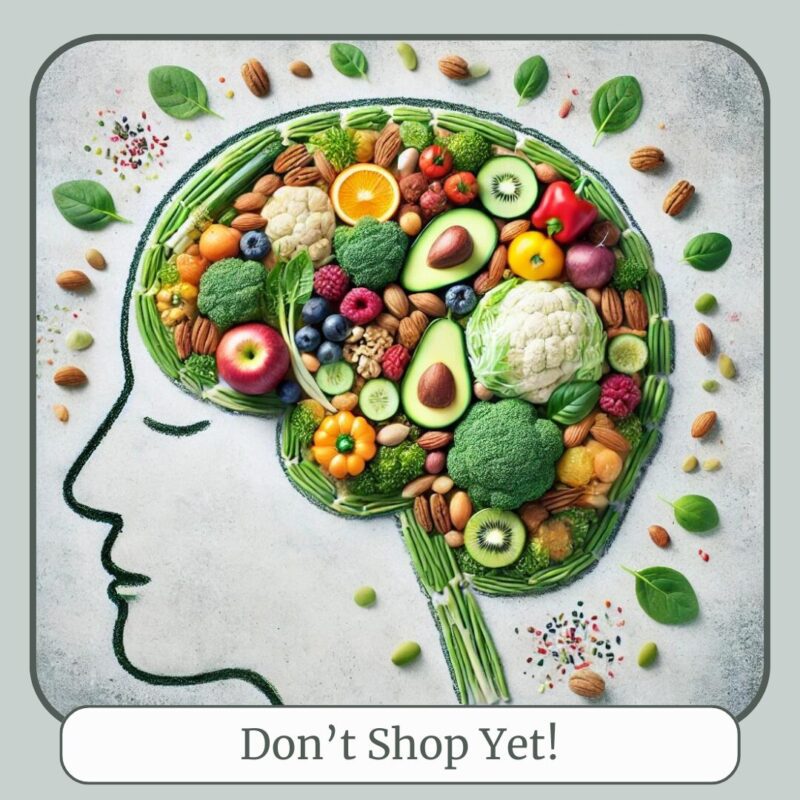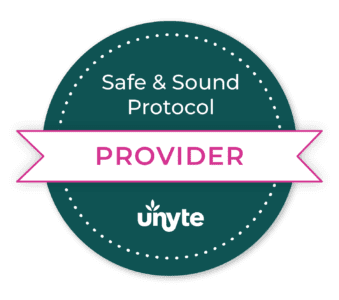Navigating the Maze of Supplements: Why a Balanced Approach Matters
In today’s world, we are constantly bombarded with information about health and wellness. With the rise of social media, influencers, and countless health blogs, it’s easy to feel both over-informed and under-prepared. One minute you hear about the wonders of magnesium for anxiety, and the next you’re told Vitamin D will fix everything. The result? Confusion, overwhelm, and a cabinet full of supplements you’re not sure you need.
At Cypress Counseling & Wellness, we see this dilemma regularly—clients who want to take charge of their health but feel lost in the noise. This series aims to help you cut through that noise and make informed, thoughtful choices about your mental health and nutrition, breaking down the impact of common nutrients for mental health and ways to determine when to supplement.
Why Food First is Always the Best Approach
There’s a reason we emphasize starting with whole foods: the body recognizes and absorbs nutrients from food more effectively than from isolated supplements. Whole foods provide a rich combination of vitamins, minerals, fiber, and other compounds that work together in ways supplements can’t always replicate. For example:
- Spinach isn’t just a source of magnesium—it also provides fiber, folate, and iron, all of which support brain function.
- Fatty fish like salmon doesn’t only offer Omega-3s—it also gives you protein, B vitamins, and selenium.
The idea of getting all your nutrients in one neat little pill might be appealing, but food brings the full package of health benefits, helping your body absorb and use nutrients in the most effective way.
When Supplements Do Make Sense
While food should always be your first source of nutrients, supplements can fill gaps when necessary. There are valid reasons to supplement, particularly in cases where:
- Dietary restrictions limit your intake of key nutrients (e.g., vegans missing Vitamin B12 or Omega-3s from fish).
- Deficiencies are diagnosed through testing (low levels of Vitamin D, Magnesium, or Iron, for example).
- Health conditions increase your body’s need for specific nutrients or make it difficult to absorb them (such as poor gut health or autoimmunity).
However, self-diagnosing based on symptoms or general advice can lead to over-supplementation or even missing the root cause of an issue. That’s why it’s crucial to test before you guess.
When Getting Enough Isn’t Enough: The Role of Nutrigenomics
One of the trickiest aspects of nutrition is that even if you’re consuming enough of a nutrient, your body may not be able to properly absorb it. This is where nutrigenomics comes into play. Nutrigenomics looks at how your genes affect your body’s ability to process and absorb nutrients. For example, some people may have genetic variations that prevent them from efficiently absorbing B vitamins or converting Omega-3s into usable forms.
At Cypress Counseling & Wellness, our nutrigenomic testing can help you discover whether your body is absorbing nutrients properly—or if you’re missing out on the benefits, despite a healthy diet. Personalized insights from nutrigenomics can guide more effective nutrition and supplementation strategies, ensuring your body gets what it truly needs.
Testing is the Key to Personalization
At Cypress Counseling & Wellness, we know that navigating your body’s nutritional needs can feel like an impossible puzzle. This is where in-office testing can make a real difference. Instead of relying on guesswork or the latest health trend, testing allows us to measure your levels of key nutrients like Vitamin D, B12, fatty acids, and more.
This helps to ensure you’re only supplementing where there’s a real need—and that your nutrient levels are balanced to support your mental and physical health. In a culture that swings between extremes of over-supplementation and under-nutrition, personalized testing helps you stay grounded in what you specifically need.
The Information Overload Problem
One of the challenges of modern health culture is the overwhelming amount of information—some of it is solid, and some of it, unfortunately, is not. Many people feel like they need a supplement for everything: one for brain fog, another for sleep, and a handful more for mood, memory, and stress. But this isn’t how nutrition should work. More isn’t always better, and often, less is more when it comes to supplements. Too many isolated nutrients can lead to imbalances, waste, and sometimes even harm.
The truth is, no one-size-fits-all approach will work because everyone’s body is different. Nutritional needs vary by age, lifestyle, health conditions, and even where you live. For example, if you’re spending your days indoors, you might need more Vitamin D, but someone living in a sunny climate and getting outside regularly may not need supplementation at all.
Our Approach: Balanced and Informed
At Cypress Counseling & Wellness, we believe in a balanced approach to mental health nutrition. In this blog series, we’ll take a deep dive into the nutrients that play key roles in brain function, mood regulation, and overall well-being. Each post will explore:
- What the nutrient is and why it’s essential for your mental health.
- How it supports brain and mood function, backed by up-to-date research.
- Top food sources to incorporate into your diet.
- When you should consider supplementation—and why testing first is key.
Why You Shouldn’t Rush to Buy Everything
Before you jump into buying supplements, take a step back. Evaluate your diet first. Are you consistently eating a variety of nutrient-dense foods like fruits, vegetables, whole grains, lean proteins, and healthy fats? If not, improving your diet is the best place to start. Supplements are meant to fill gaps, not replace the foundation of a healthy diet.
Here are three steps to take before you hit the supplement aisle:
- Evaluate your diet: Are you getting a variety of whole, nutrient-rich foods daily?
- Assess your lifestyle: Do you have any special conditions (like a restricted diet, stress, or a health issue) that might increase your need for specific nutrients?
- Get tested: If you’re experiencing chronic symptoms—fatigue, anxiety, or brain fog, for instance—consider testing your nutrient levels. This will provide a clear picture of any deficiencies, so you can supplement mindfully and effectively.
Looking Ahead
In the posts that follow, we’ll take a deep dive into nutrients like Omega-3 fatty acids, B vitamins, Magnesium, Vitamin D, and more. We’ll explore how they work, their roles in mental health, and the best food sources to boost your intake. By the end of this series, you’ll have a clear understanding of your body’s needs and how to meet them through a balanced, informed approach.
Ready to get started? Tomorrow, we’ll begin with one of the most crucial nutrients for mental health: Omega-3 Fatty Acids—the brain’s best friend.
-

Rachel Plympton, LCSW, brings 14+ years of expertise to her mission of creating lasting, whole-body wellness. Using a dynamic blend of Play Therapy, Cognitive Behavioral Therapy, Mindfulness, EMDR, and Safe and Sound Protocol™ (SSP), she helps clients break through barriers and achieve meaningful change. Rachel also offers Wellness Panels that reveal powerful insights into the link between mental and physical health. Whether working with children, teens, or adults, Rachel is dedicated to guiding her clients in transformation and resilience.
View all posts
- Introduction to Nutrients for Mental Health: Don’t Shop Yet
- Omega-3 Fatty Acids: The Brain’s Best Friend
- B Vitamins: Energy Boosters for Your Brain
- Magnesium: Nature’s Chill Pill
- 7 Powerful Ways Zinc Boosts Mental Health & Brain Function
- 7 Surprising Ways Vitamin C Boosts Your Mental Health
 (281) 305-9387
(281) 305-9387









